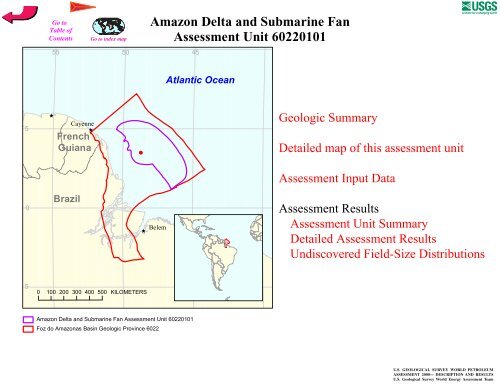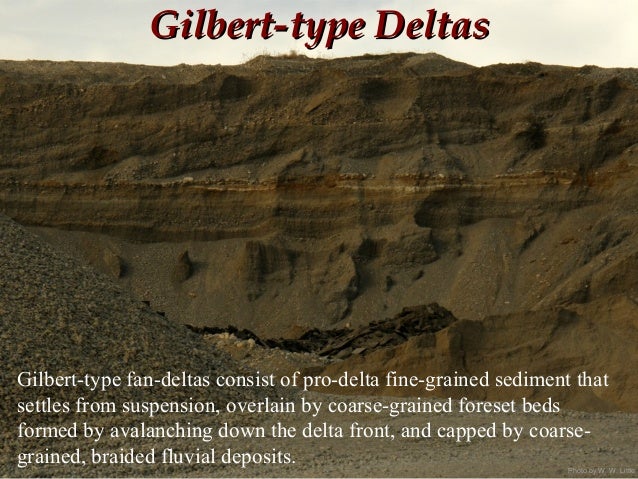Fan Delta
Delta KDB0712HB ET2400A fan ET2400E ET2400 one machine fan desktop computer CPU cooling cooler 12V 0.45A + 5% off $26+ order w/ promo code SXDOOLCOOLING, limited offer Model #: KDB0712HB123. Fan deltas are like alluvial fans except they dip their toes in lakes and shallow seas. So, in addition to the alluvial component, there is subaqueous deposition down a relatively steep, angle-of-repose slope. A fan delta is a depositional feature that is formed where an alluvial fan develops directly in a body of standing water from some adjacent highland. A braid delta is a coarse-grained delta that develops by progradation of a braided. Fan deltas are very varied in their morphology and three broad types have been recognized on the basis of gradient and water depth of the coastal shelf, namely shelf-type (shallow water) fan deltas, slope-type fan deltas, and Gilbert-type fan deltas (Reading and Collinson, 1996). From: Treatise on Estuarine and Coastal Science, 2011.
| ELT80-110 | DC Exhaust Fan Dual .7 sones | ELT80-110 Parts |
| ELT80-110D | ELT80-110D Parts | |
| ELT80-110DLED | ELT80-110DLED Parts | |
| ELT80-110H | ELT80-110H Parts | |
| ELT80-110HLED | DC Exhaust Fan, Humidity Sense .7 sones | ELT80-110HLED Parts |
| ELT80-110LED | DC Exhaust Fan Dual Speed .7 sones | ELT80-110LED Parts |
| ELT80-110MH | DC Exhaust, Humidity, Motion Sense .7 sones | ELT80-110MH Parts |
| ELT80-110MHLED | DC Exhaust Fan Motion,Humidity, Led Dual Speed .7 ... | ELT80-110MHLED Parts |
| GBR100 | DC Exhaust Fan 100cfm, 1.4 sones | GBR100 Parts |
| GBR100H | Humidity Sensing Exhaust Fan 1.4 sones | GBR100H Parts |
| GBR100HLED | Humidity Sensing 100CFM Led Exhaust Fan | GBR100HLED Parts |
| GBR100LED | DC Exhaust Fan 100cfm 1.5 sones | GBR100LED Parts |
| GBR100LED-DÉCOR | Exhaust fan 100cfm Led Light | GBR100LED-DÉCOR Parts |
| GBR80 | DC Exhaust Fan 80 cfm .8 sones | GBR80 Parts |
| GBR80H | Humidity Sensing Exhaust Fan | GBR80H Parts |
| GBR80HLED | Humidity Sensing Exhaust Fan w/ LED Light | GBR80HLED Parts |
| GBR80HMLED | GBR80HMLED Parts | |
| GBR80LED | DC Exhaust Fan/led light 80 cfm .8 sones | GBR80LED Parts |
| ITG100 | DC Exhaust Fan 100CFM 1.5 sones | ITG100 Parts |
| ITG100ELED | Dimable 100CFM DC Exhaust Fan 1.5sones | ITG100ELED Parts |
| ITG100ELED | DC Exhaust Fan 1.5 sones | ITG100ELED Parts |
| ITG100ELED | Dimable 100CFM DC Exhaust Fan 1.5sones | ITG100ELED Parts |
| ITG100ELED | DC Exhaust Fan 1.5 sones | ITG100ELED Parts |
| ITG50 | DC Exhaust Fan 50 cfm .7sones | ITG50 Parts |
| ITG50HLED | Humidity Sensing DC Exhaust Fan 50cfm .7 sones | ITG50HLED Parts |
| ITG50LED | DC Exhaust Fan/Led 50cfm .7sones | ITG50LED Parts |
| ITG70BT | Dimmable Led,Blue Tooth Speaker .7 sones Exhaust f... | ITG70BT Parts |
| ITG80 | DC Exhaust Fan 80cfm 1.3 sones | ITG80 Parts |
| ITG80H | Humidity Sensing DC Exhaust Fan 1.5 sones 80 cfm | ITG80H Parts |
| ITG80LED | Dimmable Led DC Exhaust Fan | ITG80LED Parts |
| Pro200 | DC 200CFM Exhaust Fan 1 Sone | Pro200 Parts |
| Pro300 | DC Exhaust Fan 300Cfm 2 sones | Pro300 Parts |
| RAD110LED | DC Heater/Exhaust Fan/Led .7 sones | RAD110LED Parts |
| RAD80 | DC Heater, Exhaust Fan 1.5sones | RAD80 Parts |
| RAD80L | DC Heat/Fan/Flourscent lite, 1.3 sones | RAD80L Parts |
| RAD80LED | DC Heater/Exhaust Fan/Led 1.5 sones | RAD80LED Parts |
| REC80LED | DC Exhaust Fan/led light 1.5 sones | REC80LED Parts |
| SIG110 | DC Exhaust Fan 80 cfm .3 sones-Obsoleted | SIG110 Parts |
| SIG110LED | DC Exhaust Fan 110 cfm .3 sones-Obsoleted | SIG110LED Parts |
| SIG80 | DC Exhaust Fan 80 CFm .03 sones | SIG80 Parts |
| SIG80-110 | DC Exhaust Fan Dual CFM .3 Sones | SIG80-110 Parts |
| SIG80-110D | DC Exhaust Fan Dual Speed .3 Sones | SIG80-110D Parts |
| SIG80-110DLED | DC Exhaust Fan Dual Speed. Dimmable .03Sones | SIG80-110DLED Parts |
| SIG80-110ELED | DC Exhaust Fan Dual Speed, Dimable Edge Lit .5 son... | SIG80-110ELED Parts |
| SIG80-110H | DC Exhaust Fan Dual Speed, Humidity .3 sones | SIG80-110H Parts |
| SIG80-110HLED | DC Exhaust Fan Dual Speed Humidity Led .3 sones | SIG80-110HLED Parts |
| SIG80-110LED | DC Exhaust Fan Dual Speed Led .3sones | SIG80-110LED Parts |
| SIG80-110MH | DC Exhaust Fan Motion, Humidity, Dual Speed .3 Son... | SIG80-110MH Parts |
| SIG80-110MHLED | DC Exhaust Fan, Motion, Humidity, Led .3 sones | SIG80-110MHLED Parts |
| SIG80D | DC Dual Speed Exhaust Fan .3 sones | SIG80D Parts |
| SLM100 | Slim 100cfm 1 sone | SLM100 Parts |
| SLM50 | DC Exhaust Fan 50cfm 1.sone | SLM50 Parts |
| SLM70 | 70 cfm Exhaust Fan 3' duct 1.sone | SLM70 Parts |
| SLM70D | Dual Speed 40/70cfm | SLM70D Parts |
| SLM70H | Humidity sensing 70cfm 2.sones | SLM70H Parts |
| SLM80 | Slim 80cfm .6sones on 3/4 duct | SLM80 Parts |
| SMT130 | DC Exhaust Fan 130cfm .3 sones | SMT130 Parts |
| SMT130H | DC Exhaust Fan Humidity Sensing 130cfm .3 sones | SMT130H Parts |
| SMT130M | DC Exhaust Fan, Motion Sensing, 130cfm .3 sones | SMT130M Parts |
| SMT150 | DC Exhaust Fan 150cfm .3 sones | SMT150 Parts |
| SMT150D | DC Exhaust Fan Dual Speed .3 sones | SMT150D Parts |
| SMT150LED | DC Exhaust Fan, Led 150cfm .5 sones | SMT150LED Parts |
| VFB25ADBT | DC Exhaust Fan Blue Tooth Speaker 1.Sones | VFB25ADBT Parts |
| VFB25ADBT | VFB25ADBT Parts | |
| VFB25ADBT | DC Exhaust Fan Blue Tooth Speaker 1.Sones | VFB25ADBT Parts |
| VFB25ADBT | VFB25ADBT Parts |
The main difference between alluvial fan and delta is that alluvial fans are formed from the deposition of water-transported materials, whereas delta is formed from the deposition of sediments carried by rivers at an estuary.
The terms alluvial fan and delta refer to the landforms which are formed from the deposition of material that comes with flowing water. Generally, alluvial fans form at elevated places such as mountains while delta forms at the regions near the ocean.
Key Areas Covered
1. What is an Alluvial Fan
– Definition, Features, Formation
2. What is a Delta
– Definition, Features, Formation
3. What is the Difference Between Alluvial Fan and Delta
– Comparison of Key Differences
Key Terms
Alluvial Fan, Delta, Sediments, Water Bodies
What is an Alluvial Fan
An alluvial fan is a landform that has a triangular shape and forms due to the deposition of materials that are transported by water. These materials are known as “alluvium”. These are usually unconsolidated sedimentary deposits. Typically, these landforms form in elevated regions such as mountains. This is because these regions have a rapid change in slope at a short distance. Due to this rapid gradient of landscape slope, the rivers that flow on these regions have a high velocity; therefore, the coarse materials can remain in the flow. When the river reaches a planar region, the stream loses the energy to move its sediment materials. Ultimately, the sediments spread out on the ground, forming the alluvial fan. An alluvial fan has three major regions: proximal fan, medial fan and distal fan.

An alluvial fan can exist in a wide range of sizes. For example, some alluvial fans are on the scale of meters at the base and on kilometre-scale at the edge of the fan. Sometimes, two or more alluvial fans tend to combine and form a continuous apron. Often, alluvial fans form in desert regions. This is because deserts often experience flash floods from nearby thunderstorms in local hills. However, these landforms can also form in humid regions—E.g. near the Koshi river in Nepal. Moreover, alluvial fans are often subject to floods; sometimes, they are dangerous than usual flooding.
What is a Delta
Delta or river delta are landforms created due to the deposition of sediments carried by water in the river. These landforms form at estuary (the point where a river connects to the ocean). This deposition occurs as the river water flow leaves its mouth and enters a slow-moving water region such as the ocean. Not only at estuaries, but these landforms also form at places where the river meet a lake, sea, reservoir, and rarely, another river.
Figure 2: Structure of a Delta
Fan Delta Definition
The shape and the size of this deposition depend on the watershed process and the receiving mechanism. The size, geometry and location of the receiving water body also affect the formation of the delta. From ancient times to today, these rivers deltas have been very important in human civilizations since agricultural lands are always located near the water bodies. Moreover, these landforms are important ecologically since there are a number of different animal and plant species living in these regions.

Difference Between Alluvial Fan and Delta
Definition

An alluvial fan is a landform that has a triangular shape and forms due to the deposition of materials that are transported from water. In contrast, a delta or river delta is a landform created due to the deposition of sediments carried by water in the river.
Location
Alluvial fans form at mountain regions while deltas form at ocean regions
Elevation
While alluvial fans have a higher elevation, deltas have a lower elevation.
Formation

Moreover, alluvial fans form from the deposition of coarse material that comes with water flow at a high velocity while deltas form from the deposition of sediments that occurs when a flowing water body meets a non-flowing water body.
Fan Delta

Size and Shape
Alluvial fans can vary in size, but their shape is always triangular. Deltas are usually smaller than alluvial fans and their shape varies with the nature of moving and non-moving water bodies.
Fan Delta Geology
Conclusion
Alluvial fan and delta are landforms that form from the deposition of sediment materials. The main difference between alluvial fan and delta is that alluvial fans form from the deposition of water-transported materials whereas delta form from the deposition of sediment carried by rivers at an estuary.
Reference:
Delta Bathroom Fan
1. “Alluvial Fan.” Encyclopædia Britannica, Encyclopædia Britannica, Inc., 18 Apr. 2020, Available here.
Image Courtesy:
Fan Delta Pressure
1. “Mini Alluvial Fan Imprinted with Footprints” By Wing-Chi Poon – at Salt Creek Interpretive Trail, Death Valley National Park, California, USA (CC BY-SA 2.5) via Commons Wikimedia
2. “Line5066 – Flickr – NOAA Photo Library” By Alaska ShoreZone Program NOAA/NMFS/AKFSC; Courtesy of Mandy Lindeberg, NOAA/NMFS/AKFSC. – NOAA Photo Library: line5066, Public Domain) via Commons Wikimedia



